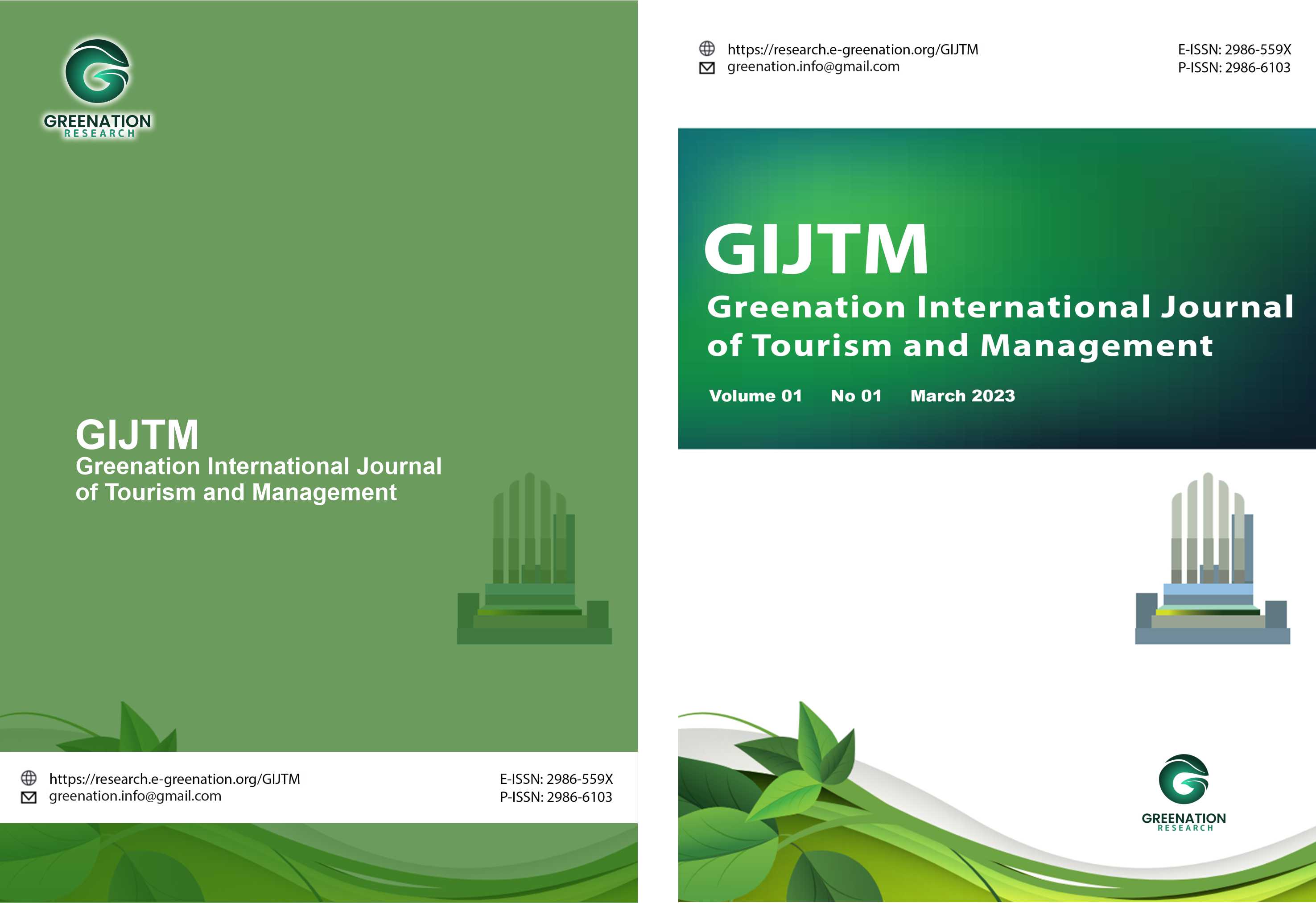Management In A New Perspective (In Comparative Study Literature)
DOI:
https://doi.org/10.38035/gijtm.v1i3.106Keywords:
Patience, Fairness, Trust, Smart, Be ProactiveAbstract
Management Science has been in existence and evolving for about 3,000 years, spanning three distinct eras: prehistoric, historical, and modern. It's evident that knowledge of management is an integral part of human existence. In this article, we aim to introduce a novel perspective on Management, emphasizing the idea that effective management begins with self-mastery before extending to external management endeavors. The approach taken in this article involves merging established management theories with principles from the Alqur'an, Hadith, and works like "The 7 Habits of Highly Effective People," "Maximum Achievement," and "Kubik Leadership." Management, in essence, is defined as the art of collaborating with people and utilizing organizational resources to accomplish predefined objectives. In simpler words, it's about employing resources to achieve set goals through effective interactions with people. Islamic teachings emphasize two main purposes for human creation: worshiping the Creator and acting as stewards or natural managers (others management). When fulfilling the role of steward or nature manager, Islamic teachings stress the significance of self-management as a foundation for behavior. This concept is mirrored in the principle of sidiq (fairness), which forms a trust-building self-mirror, ultimately leading to self-growth. The Seven Habits, as presented by Covey, provide guidelines for high effectiveness, emphasizing the importance of personal mastery. Conclusion of this article emphasizing before managing external aspects of one's life and environment through established management theories, it is essential to begin by nurturing oneself. This process involves drawing inspiration from the teachings of the Alqur'an and Hadith, as well as other referenced literature mentioned within this article.
References
Covey, S. R.; Englan, B. 2012. The 3 Alternative. Diterjemahkan oleh Fairano Ilyas. PT. Gramedia Pustaka Utama. Jakarta.
Covey, S. R. 1989 The Seven Habvits of Highly Effective People. Diterjemahkan oleh Fairano Ilyas. PT. Gramedia Pustaka Utama. Jakarta.
Bernard Ch. 1940 (update 2021). Informal Organizations and Acceptance Theory. chester-barnard-informal-organizations-and-acceptance-theory.html
George R. Crowley and Rusell S. Sobel. 2010. Adam Smith: managerial insights from the father of economics. Journal of Management History. Vol. 16 No. 4, 2010. Pp. 504-508. @Emerald Group Publishing Limited. ISBN 1751-1348. DOI 10.1108/17511341011073979.
Haanel, C. F. 2013. The Master Key System. Diterjemahkan oleh Lanny Anggawati dan Wena Gentiawati. AW Publishing. Jakarta.
Hamka. 1983. Tafsir Al-Azhar, Jakarta: Panji Mas.
Imad al-Din Abi al-Fida’ Ismail Ibn Katsir al-Qurasy al-Dimasyqy. 2014. Tafsir al-Quran al Azim, Manshura, Dar al-Badr, Manshurah,
Jalal al-Din al-Suyuthi, Tafsir al-Jalalayn, Pustaka Assalam, tt
Muhammad bin Isma’il Abu Abdullah al-Bukhori. 1987. Al-Jami’ al-Shohih al-Bukhori al-Mukhtasar, ed. by Musthafa Dib (Beirut: Darr Ibnu Katsir)
Moh Fuad Abd al-Baqi, Kitab Al-Mu’jam Mufahras li Al-Fadz al-Qur’an, Kairo, Darul al-Hadits,2010.
Moh Qurasy Syihab. 2006. Tafsir al Misbah (Lentera Hati) Vol 1.
More Than Sound, LLC. 2017.Emotional Intellegence. https://www.case.org/conferences-training/leadership-rising-advancement-stars/sessions/emotional-intelligence-why-it-key
Oberoi. R. (….). Frederick Wilson Taylor’s Scientific Management Theory. Karori Mall College, University of New Delhi. https://epgp.inflibnet.ac.in/epgpdata/uploads/epgp_content/S000030PU/P001502/M016156/ET/146536875003.ET.Taylor-Roopinder_Oberoi.pdf
Poniman, F., Nugroho, I., Azzaini, J. 2018. Kubik Leadership. PT. Gramedia. Pustaka Utama. Jakarta. ISBN: 979-3674-92-X.
Quthb, Sayyid. 1989. Fi Zhilal al-Qur`an, Vol II, Kairo: Dar al-Syuruq.
Ridho at.al. 2021. Terapi Rumi (terjemahan dari Nevzat Tahan, 2015). PT QafMedia Kreativa, Pasar Minggu, Jakarta Selatan. Cetakan ke 1, Mei 2021. ISBN: 978-623-6219-03-4.
Said Hawwa. 1987. al-Islam, Vol II. Kairo, Maktabah Wahbah,
Samuel. C. Certo, Travis. C. Certo.1993. Modern Management: Concept and Skills Plus (9th Edition). ISBN 0130670898
Shadiq Husein. 2010. Ta,ammulat I’jaziyah li al-Nabiy fi Majal al-Amn wa al-Siyasi, al-Haiah al-Misriyah al-Ammah, Kairo.
Tracy, B. 2007. Change Your Tanking Change Your Live. Bebaskan Potensi Dahsyat Anda untuk Kesuksesan yang Tidak Terbatas. Diterjemahkan ole h Lastiati, A. Mizan Media Utama. Jakarta.
Tracy, B. 2005. Maximum Achievement . Diterjemahkan ole h Lastiati, A. Mizan Media Utama. Jakarta.
Weijirich H, Koontz H. 1993. Management: A Global Perspective. 10th.ed, McGraw-Hill, c1993. New York. ISBN 0071137726
Downloads
Published
How to Cite
Issue
Section
License
Copyright :
Authors who publish their manuscripts in this journal agree to the following conditions:
- Copyright in each article belongs to the author.
- The author acknowledges that the Greenation International Journal of Tourism and Management (GIJTM) has the right to be the first to publish under a Creative Commons Attribution 4.0 International license (Attribution 4.0 International CC BY 4.0).
- Authors can submit articles separately, arrange the non-exclusive distribution of manuscripts that have been published in this journal to other versions (for example, sent to the author's institutional repository, publication in a book, etc.), by acknowledging that the manuscript has been published for the first time at GIJTM.

























